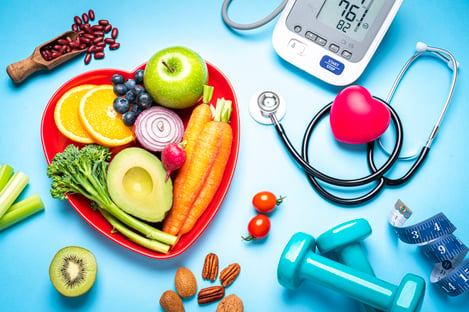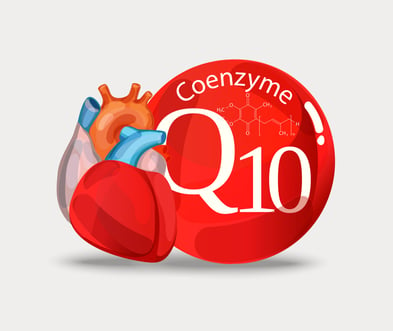 Everyone knows that routine exercise benefits your heart and overall health in the long term, but what do those benefits look like? When we start exercising, we can experience benefits almost immediately, and even after months of training, our body continues to adapt. The key is to find a routine that best fits you and stick with it—because if we stop exercising, our body can lose the adaptations it made.
Everyone knows that routine exercise benefits your heart and overall health in the long term, but what do those benefits look like? When we start exercising, we can experience benefits almost immediately, and even after months of training, our body continues to adapt. The key is to find a routine that best fits you and stick with it—because if we stop exercising, our body can lose the adaptations it made.
Understanding Your Heart Health Risks
Many people are unaware of their cardiovascular risks until symptoms arise, making prevention even more important. The American College of Sports Medicine (ACSM) outlines several risk factors that contribute to cardiovascular disease:
-
Age: Men over the age of 45; women over the age of 55.*
-
Family history: A male family member who had a heart attack or open-heart surgery before age 55, or a female family member before age 65.*
-
Smoking: Current smoking or having quit within the past 6 months.
-
Physical inactivity: Not meeting the minimum of 150-300 minutes per week of moderate-intensity exercise or 75-150 minutes per week of vigorous-intensity exercise.
-
BMI: A BMI greater than 30.
-
Blood pressure: Resting blood pressure higher than 130/80.
-
Cholesterol: LDL >130 mg/dL, HDL <40 mg/dL, or total cholesterol >200 mg/dL.
-
Blood sugar: Fasting blood sugar >100 mg/dL or A1C >5.7%.
Factors marked with an asterisk () cannot be changed.*
These measurements require additional testing done by a medical professional, such as your primary care physician (PCP).
How Exercise Benefits Heart Health
Now that you know what to look out for, let’s go through each of the changeable risk factors and see how exercise can benefit our heart health.
-
Smoking: It is well known that smoking harms your health. While exercise cannot undo the damage, it can help curb cravings, making it easier to quit. For additional help, talk to your doctor about other options.
-
Physical inactivity: Being inactive can lead to other risk factors worsening. It’s important to incorporate regular exercise and minimize long periods of sitting. The more we move, the better our overall health!
-
BMI: The fitness world often overcomplicates weight loss, but it ultimately comes down to calories in versus calories out. If you start exercising while maintaining your current caloric intake, you will likely experience weight loss over time, helping lower BMI. If you're curious about how many calories are right for you, talk to a health fitness specialist about our Resting Metabolic Rate test.
-
Blood pressure: Ideally, resting blood pressure should be under 120/70. When we exercise, our heart works harder, increasing blood pressure temporarily. After exercise, the heart rate lowers, and arteries expand, leading to an overall decrease in blood pressure over time.
-
Cholesterol: Regular exercise helps lower bad cholesterol (LDL), which can cause blockages, and increases good cholesterol (HDL), which clears LDL from the arteries. Exercise encourages your body to use cholesterol for energy rather than storing it. However, diet plays a significant role as well—meet with our registered dietitians if you have questions.
-
Blood sugar: Our body breaks down food into sugar, which is stored in muscles and the bloodstream. Exercise helps the body use excess blood sugar for energy, improving overall blood sugar levels. Like cholesterol, diet also plays a crucial role, so consulting with a registered dietitian can be beneficial.
Ready to Take the Next Step?
Research shows that engaging in at least 150-300 minutes per week of moderate-intensity exercise or 75-150 minutes per week of vigorous-intensity exercise significantly lowers cardiovascular risk factors and benefits heart health. However, exercise intensity varies from person to person depending on training status.
To ensure you’re working at the right intensity and getting the most out of your workouts, schedule a free strategy session with a health fitness specialist at the Track Desk today! Even small changes can lead to big improvements in your heart health.
Please note that exercise is NOT a replacement for prescribed medication. Always consult with your medical provider before beginning a new exercise routine.

 We often focus on heart health strategies during waking hours—exercising regularly, staying physically active, and eating nutritious meals. For instance, aerobic exercise strengthens the cardiovascular system by enhancing the heart's efficiency. With consistent training, the heart pumps blood more effectively, leading to benefits like increased left ventricle size, stronger contractions, and greater stroke volume. Similarly, limiting foods high in calories, saturated fats, and refined sugars helps reduce harmful byproducts like cholesterol, triglycerides, and excess sugar. But what about the hours we spend sleeping? Could your sleep habits be influencing your long-term heart health?
We often focus on heart health strategies during waking hours—exercising regularly, staying physically active, and eating nutritious meals. For instance, aerobic exercise strengthens the cardiovascular system by enhancing the heart's efficiency. With consistent training, the heart pumps blood more effectively, leading to benefits like increased left ventricle size, stronger contractions, and greater stroke volume. Similarly, limiting foods high in calories, saturated fats, and refined sugars helps reduce harmful byproducts like cholesterol, triglycerides, and excess sugar. But what about the hours we spend sleeping? Could your sleep habits be influencing your long-term heart health?
 We all know regular exercise is great for your heart and overall health, but what does that actually mean? The truth is, the benefits of exercise can start almost immediately, and your body continues to adapt over time as you stick to your routine. The key is consistency: finding an exercise routine that works for you and maintaining it. If you stop exercising, your body can lose the adaptations it worked hard to achieve.
We all know regular exercise is great for your heart and overall health, but what does that actually mean? The truth is, the benefits of exercise can start almost immediately, and your body continues to adapt over time as you stick to your routine. The key is consistency: finding an exercise routine that works for you and maintaining it. If you stop exercising, your body can lose the adaptations it worked hard to achieve.
 We can concur with many years of research that obesity can increase the risk of immune dysfunction. This is a multifaceted phenomenon often associated with factors such as physical inactivity, poor nutritional profiles, increased adiposity (fat tissue), and metabolic disorders/diseases. Commonly, the latter can gradually progress from the aforementioned factors.
We can concur with many years of research that obesity can increase the risk of immune dysfunction. This is a multifaceted phenomenon often associated with factors such as physical inactivity, poor nutritional profiles, increased adiposity (fat tissue), and metabolic disorders/diseases. Commonly, the latter can gradually progress from the aforementioned factors.
 Did you know that cardiovascular disease is one of the leading causes of death?
Did you know that cardiovascular disease is one of the leading causes of death? 
 Coenzyme Q10, also known as ubiquinone, is a commonly used supplement by those with cardiovascular risks and disease, and especially those using statins. CoQ10 acts as a carrier in our cells to assist in
Coenzyme Q10, also known as ubiquinone, is a commonly used supplement by those with cardiovascular risks and disease, and especially those using statins. CoQ10 acts as a carrier in our cells to assist in  How often is it that you hear someone say, “Man, that was a great night’s sleep!” or “I slept like a baby!”? Not as often as we would like to hear, I would say! Being tired and feeling sluggish seems to be the new normal. According to the
How often is it that you hear someone say, “Man, that was a great night’s sleep!” or “I slept like a baby!”? Not as often as we would like to hear, I would say! Being tired and feeling sluggish seems to be the new normal. According to the  When it comes to nutrition and your heart, the things you hear in the news can be very confusing:
When it comes to nutrition and your heart, the things you hear in the news can be very confusing: February is
February is